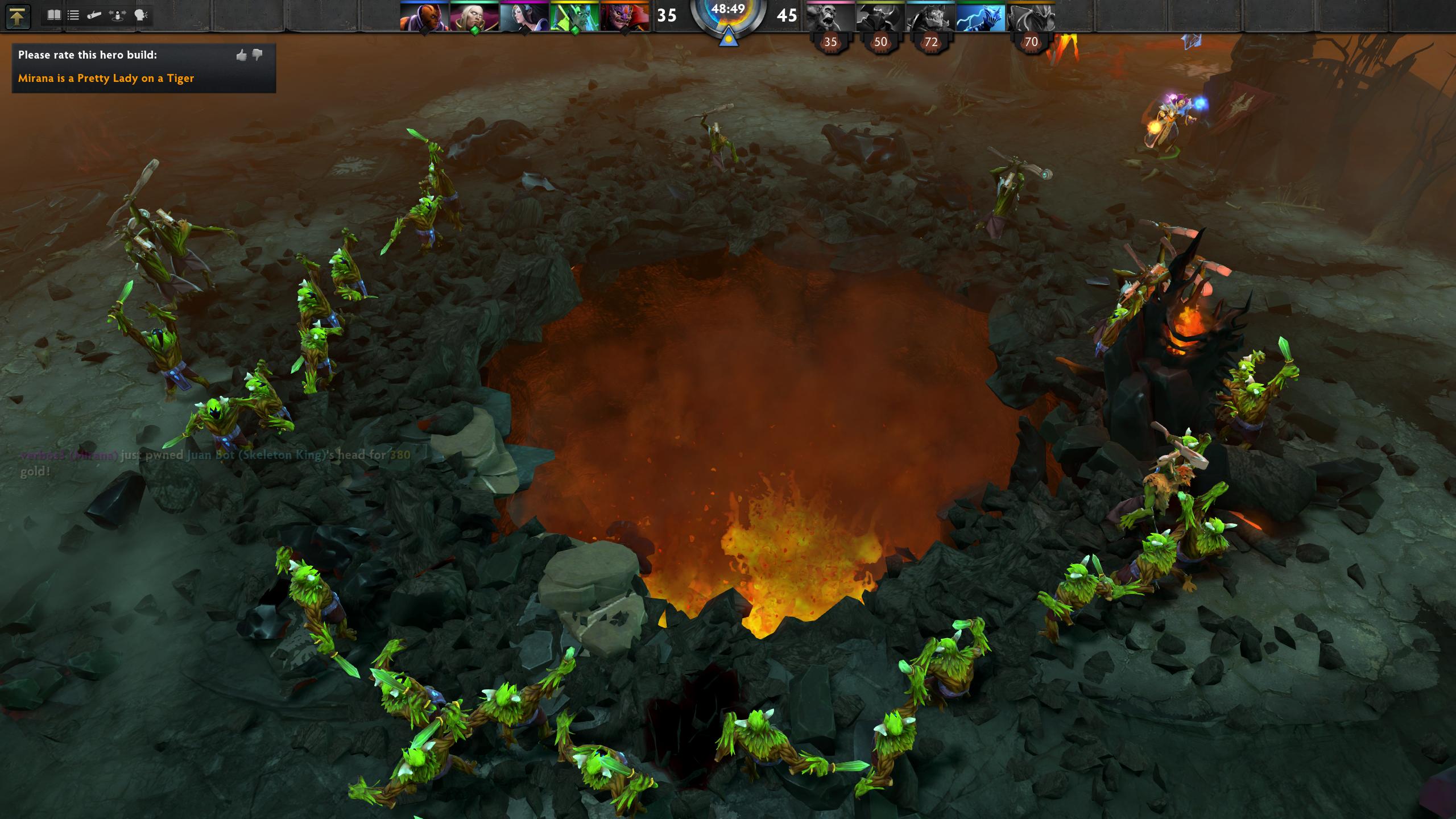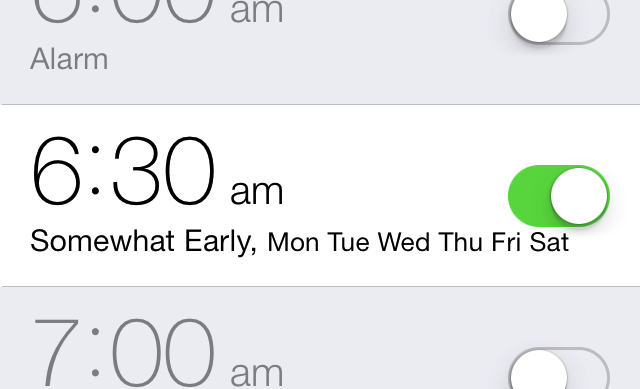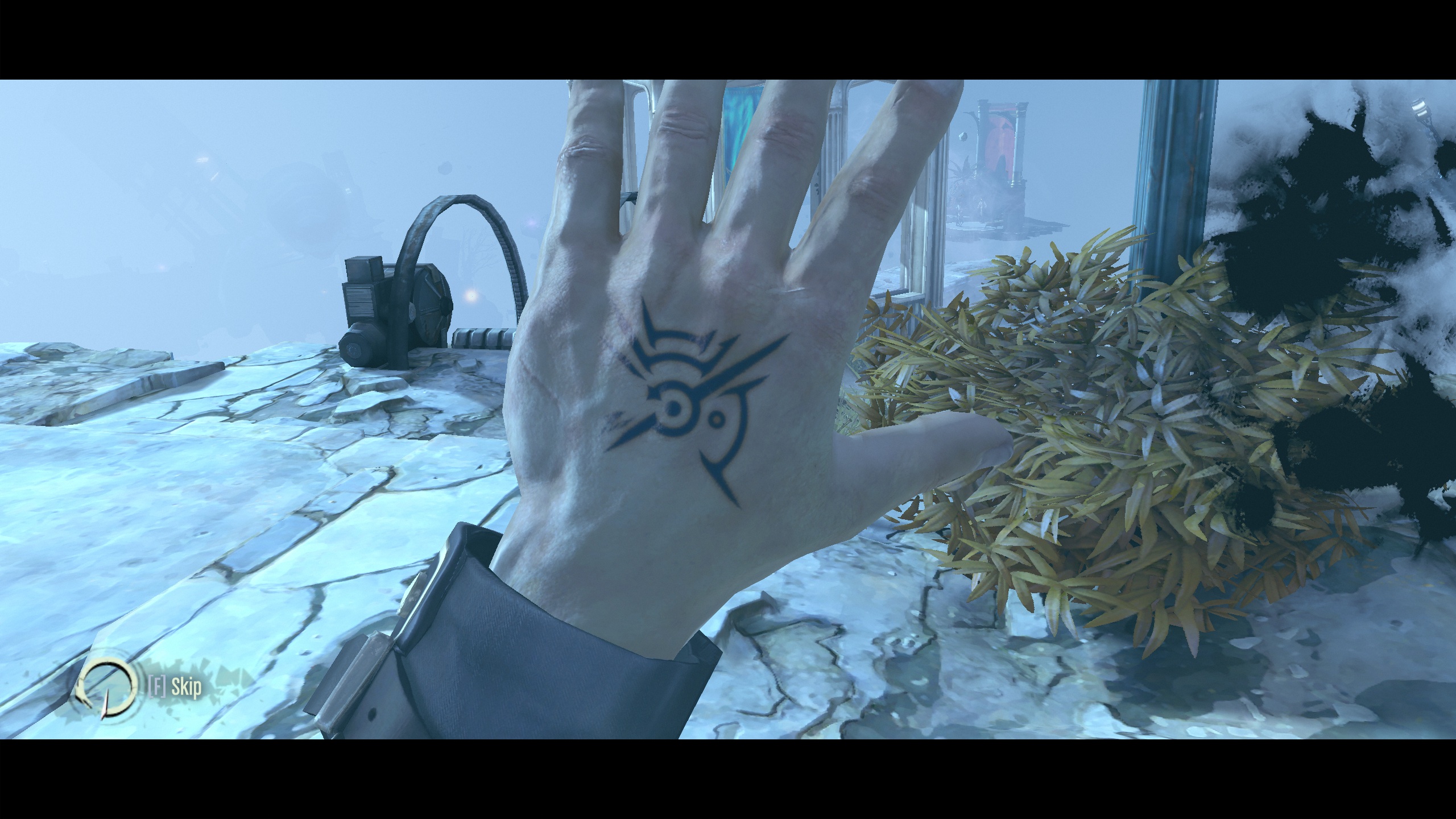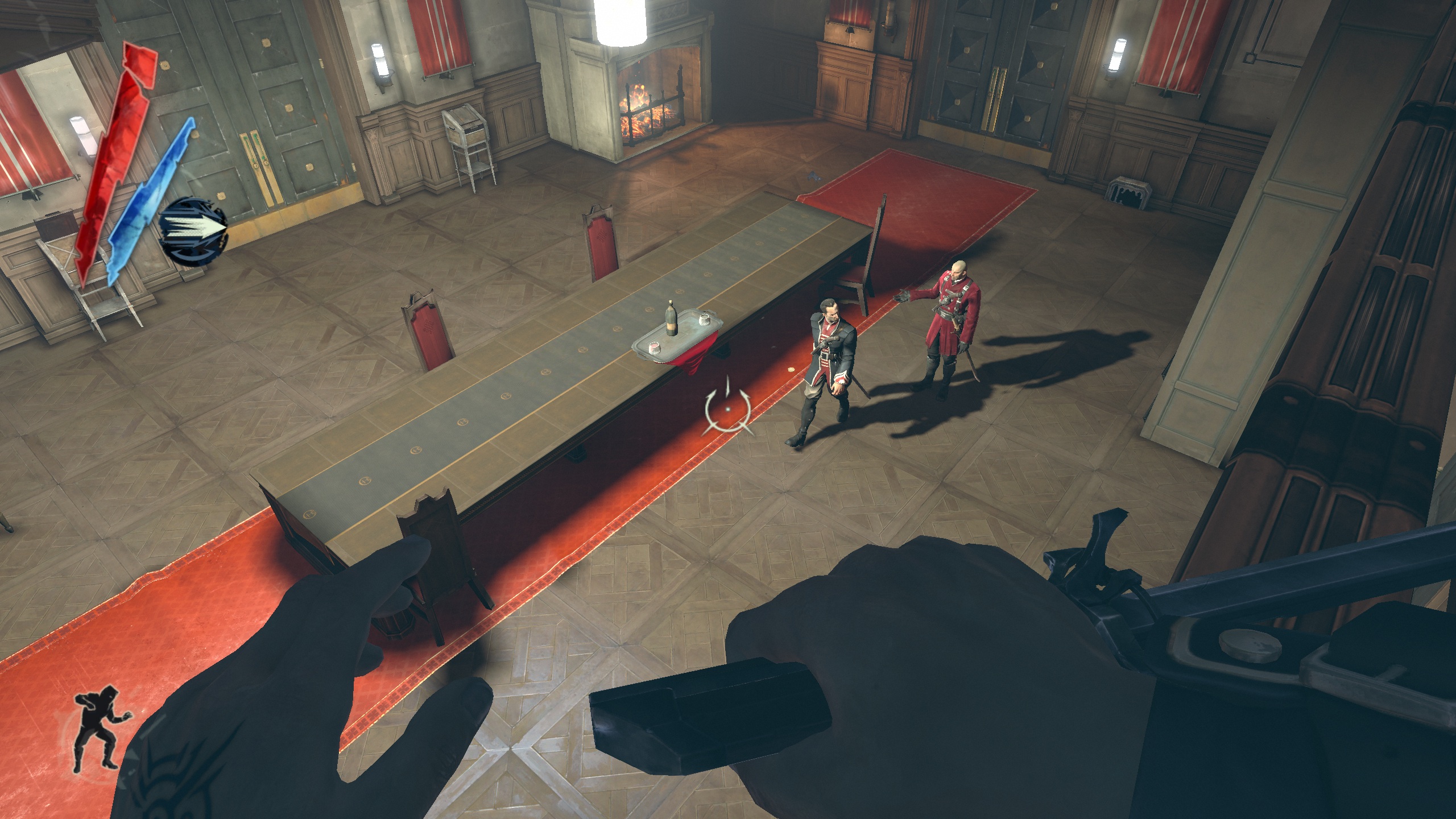If there’s a universal truth, it’s that people don’t like losing. Ask anyone, and they’ll tell you that losing sucks; anyone that tells you otherwise is either lying or a sadist.
The question is: do I take winning too seriously? There was one time, years ago, where a friend and I were playing Left 4 Dead. We were in a co-op match with two other folks, and I was shouting obscenities into our team’s text chat in an attempt to get the other players on our team to do something useful. After the match, the friend I was playing with pointed out “that guy” that was trying to get the team to win. I pointed out that “that guy” was actually me, and things were pretty awkward from that point on.
I’ve played a number of DotA 2 games now. As of writing, dotabuff says 249 real matches, with perhaps an extra 10-15 versus bots on top of that. At the moment, my win-loss ratio is sitting just under the 50-50 ratio, at 124 wins to 125 losses. Anecdotal evidence (i.e. the dotabuff profiles of a number of friends who have played hundreds of more games than I have) leads me to believe the matchmaking in DotA conspires to keep you around a 50-50 WL ratio, but with a good enough team, you can beat the odds.
Despite what you may believe, the number one influencer on your win-loss ratio isn’t yourself. At least, it’s not about yourself as much as it is about other players. For example: if another player on your team, in a different lane, decides to die repeatedly to one of your opponents in the early game, then that opposing hero now has a level and gold advantage. And even if you’re playing to the best of your ability, there’s very little you can do from preventing that opposing hero from dominating the rest of the match. From there, your fate is all but sealed: the opposing hero which received early kills dominates teamfights, and hence wipes the floor with your team. Eventually, through no fault of your own, you lose. Good game, sir.
But I’ve played enough games of DotA 2 now to realise that it’s a little more complicated than that. I’ve seen my share of impressive comebacks and last-gasp pushes that result in a win to know that the balance in DotA is incredibly delicate. What one player does or doesn’t do can tip the scales in your favour, or lose you the match. Didn’t deny the tower when you had the chance? You lose because the enemy all gained gold. Didn’t carry a TP scroll when pushing? You lose because a Nature’s Prophet decided to teleport into your base and demolish your ancient with his army of trees. Spent too much time jungling instead of pushing with your team? You lose because your team just lost that 4v5 teamfight, the enemy pushed, and you lost a tower and barracks.
Don’t get me wrong, good team work is of the utmost importance in DotA 2. It’s why I gently push others to be the best they can be if they’re having a bad game, because good teamwork means you can bring a game back from 9-0, their advantage. 30 minutes in, and it’s 16-32, still their advantage. We’re behind in kills the entire time, but when we finally take their ancient, the scoreboard reads 44-54, still in their favour. You’ll notice I went 2-17 in that match. I contributed almost nothing to that game, and yet we won. So how does that work, exactly?
Teamwork.



